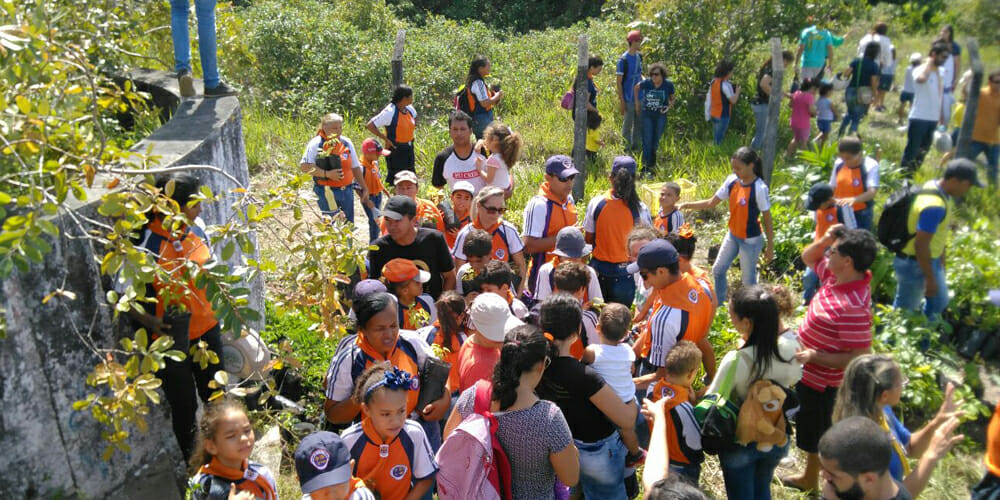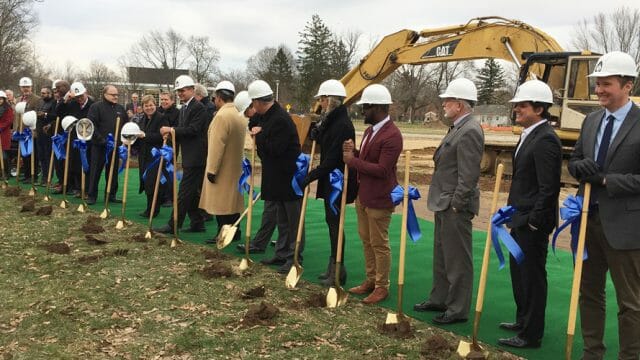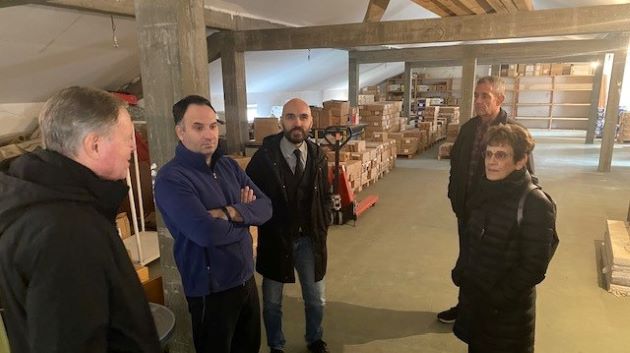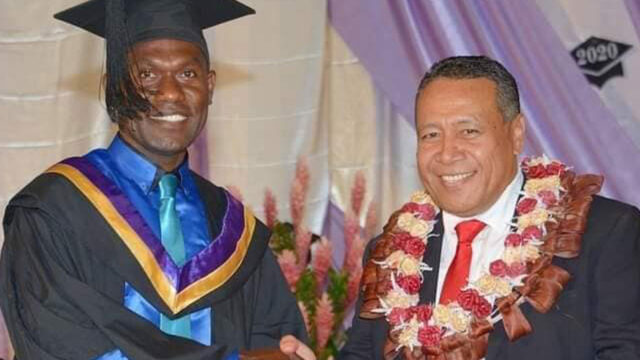Adventist Volunteers Plant Trees to Create Ecological Awareness in Brazil

More than 600 volunteers took part in an Adventist-led tree-planting initiative in Paraíba State, in northeast Brazil, on June 3, 2018. The plan, backed by the Adventist Development and Relief Agency (ADRA) in the region, looks to counter increasing water erosion in the area. It also looks to create awareness, say the organizers, about the importance of caring for God’s nature.
An ongoing transformation of coastal areas in Paraíba due to high-rise building construction and rainwater drain issues, among other factors, had moved various organizations to act to mitigate the environmental footprint across the region. Studies have shown that tree-planting initiatives can help fight the current deterioration of the land by erosion. They also determined that locally, one of the spots most affected is a place known as Cabo Branco cliffs.
Proactive Involvement
Against this background, and trying to get young people and even children involved in conservation initiatives, Adventist volunteers embarked in the “Day + Green Project.” The June 3 activity, the first phase of a longer project, included planting close to 800 trees across the area of Cabo Branco.
The environmental education initiative is an annual activity that offers young people the opportunity to make a concrete contribution to ecological balance by planting native plants and trees. The targeted locations are usually heavily populated areas across Paraíba State. The tree-planting activity was organized by the Adventist Development Relief Agency (ADRA) in northeast Brazil, the Adventist humanitarian agency in the area.
ADRA Northeast Brazil director Erinaldo Costa explained that one of the goals of the project is to motivate partners across the region to get them involved in similar initiatives. “Our goal is not only to do our part but also to encourage others to do theirs, working hard to preserve the natural beauties close to us,” he said.
Creating Awareness
According to Hilário Mendonça, one of the organizers, putting such an activity together is a rewarding, if challenging, enterprise. “It’s a challenge because of the lack of resources and the hard, logistical work involved,” he said. “At the same time, it’s quite gratifying, because people see the dedication and effort of a group of people thinking not only in their future but in the future of others. It is rewarding to realize we are working to educate a new society.”
Tree-planting activities took place mostly in southern coastal areas, where Adventist volunteers planted seedlings of native trees such as yellow and red ipês, yellow trumpetbush, brazilwood, Brazilian acacia, palm trees, and others. The goal is to plant 10,000 trees by December 2018.








